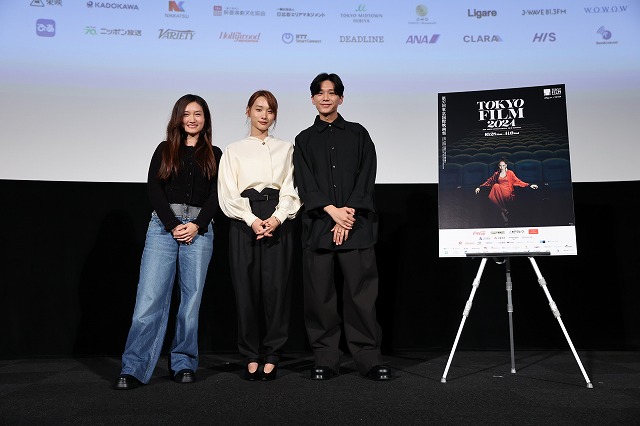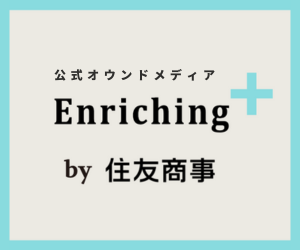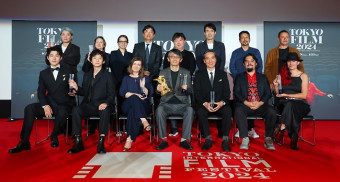
After focusing on one of Hong Kong’s foreign domestic helpers in her multiple award-winning 2018 feature debut Still Human, writer-director Chan Oliver Siu Kuen turned the focus closer to home with her new work, Montages of a Modern Motherhood, which received its Japanese premiere on November 2 at the 37th Tokyo International Film Festival. Chan was on hand for the post-screening Q&A session, along with actors Hedwig Tam and Lo Chun Yip.
TIFF Senior Programmer Andrijana Cvetkovikj, the driving force behind TIFF’s new Women’s Empowerment section in which the film screened, was moderating and told Chan, “For me, this film has a very, very important theme. I felt that it’s an extension of your previous film Still Human, describing in such a sophisticated way the human experience. You go into such detail to describe what it’s like to be a mother. As a mother myself, I could so identify with so many of the scenes, even the dialogue — it’s almost like a documentary. What was your inspiration and why did you make this movie?”
Chan responded, “The inspiration was when I became a mother myself and my perspective really changed. I was one of those bad women who used to blame the mother if the baby was crying on the subway. I also went through a lot of [trying] moments, and my son was really hard to take care of. Those are the moments when I could understand how those women could hurt themselves and their kids. No one understood, no one was lending [them] a helping hand. When you become a mother, you’re in a blind spot. You’re not a man or woman, you’re a mother, and you’re supposed to be able to do it all. I felt a responsibility to make the film.”
Cvetkovikj noted, “There’s so much pressure on the mother to be perfect. Are you or are you not breastfeeding? What kind of ointments are you using? And then you have so much pressure from your peers, to continue your career. There are so many scenes where I got goosebumps. We can talk all we want about gender equality but mothers really need help.”
Montages of a Modern Motherhood follows all the daily microaggressions of being a new mother, especially the unsolicited advice from others who always know a better way to do it and the complaints from neighbors about late-night crying. Then there’s the constant breast pumping, the hair loss, the lack of sleep, the abstinence from coffee/tea, the endless sacrifices. For Suk-jing (Hedwig Tam), who lives with her well-meaning but not terribly helpful husband Wai (Lo Chun Yip) and her in-laws in the New Territories, becoming a mother is a much more fraught experience than she anticipated. “A tinge of guilt is crushing me,” she admits to a caregiver, about longing to sleep more than 5 hours a night and wanting to continue her career at a bakery.
When the post-partum depression doesn’t dissipate, Suk-jing journeys to her childhood home. “We sacrifice our careers, our time, our bodies — and what do we get in return?” she asks her sympathetic mom (the great Au Ga Man Patra). “I have you [and your brother] and that completes my life. You have to sacrifice your own interests for your children.” For a time, Suk-jing seems to consider meeting family expectations… but to do so, she must not only give up on her dreams, she must give up her own identify.
“This was still close to your own experience of being a new mother,” said Cvetkovikj. “How did you separate yourself from that in order to write the script and get it on screen?”
“I was writing during Covid and I couldn’t go out,” explained Chan. I had to take care of my children, too, and I was really busy. And I also had emotional difficulties. When you give birth, you get post-partum depression. I wanted to explore the response to those difficulties. I wanted to dedicate this film to those women who become mothers.”
Calling the film “very heavy,” an audience member asked the two actors what challenges they had faced during production. Said Tam, “I’ve never been a mother, so I talked with the director about how best to do it. At first, it was about my physique. I was too thin to be pregnant. I also listened to mothers talking about how they raised their children, and I talked with my own mother about raising me. After I’d heard all their stories, I did my best to become a mother.”
Said Lo, “When I start a role, I try to build a relationship with the person I’m acting with. Although it’s a film about a family, I worked through their first encounter, getting married, and having a child. I think the husband wants to be responsible, but he wants a fast result to problems. In Hong Kong, houses are normally small and when there are issues within the family, how can you escape from them? He wants to quickly resolve those. Since I’d never been a father, I was a little apprehensive about giving the baby a bath (which he does in the film).”
Another viewer asked about the original title of Montages of a Modern Motherhood, which is apparently drawn from a proverb that loosely translates as “The tiger does not eat the child” — in other words, even animals don’t kill their young. How, she wondered, did this relate to the film’s rather ambiguous ending? Said Chan, “At the end, I wanted to show various patterns of the future. I kept thinking about why you would carry a child for [nine] months and then harm it. I didn’t want to make the ending really harsh; I wanted to make sure there were happy times.”
Q&A Session: Women’s Empowerment
Montages of a Modern Motherhood
Guests: Chan Oliver Siu Kuen (Director/Screenplay), Hedwig Tam (Actor), Lo Chun Yip (Actor)


























































